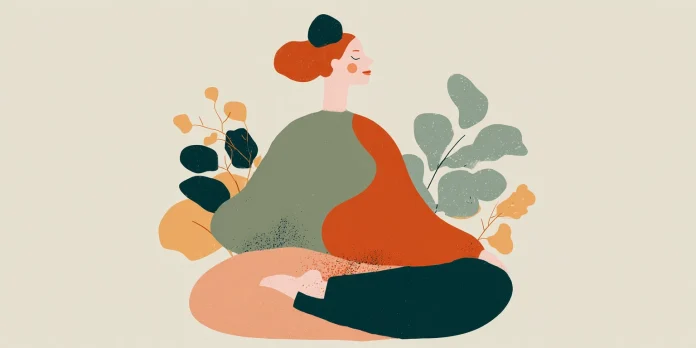Written by Malena Sanchez Moccero
How can we write about death when it touches us so deeply, without resorting to clichés? How can we narrate the loss of our loved ones without falling into commonplaces, without boring the reader, and without reducing everything to pure sadness?
In this article, we present five highly recommended books whose central theme is grief. These are not self-help books but rather novels, essays, diaries, and hybrids, all written by authors after the loss of their mothers, spouses, or other loved ones. These works captivate and resonate, penned by renowned writers.
1. The Year of Magical Thinking, by Joan Didion

“You sit down to dinner and life as you know it ends.” Joan Didion’s The Year of Magical Thinking is a harrowing yet lucid meditation on grief, memory, and loss. Written in the wake of her husband John Gregory Dunne’s sudden death on December 30, 2003, the memoir chronicles her attempt to process the unimaginable while navigating the parallel crisis of her daughter Quintana’s severe illness.
“Grief turns out to be a place none of us know until we reach it,” she writes. Didion’s meticulous prose dissects how grief distorts perception, creating a world where logic falters and superstition—magical thinking—takes hold.
“I was thinking as small children think, as if my thoughts or wishes had the power to reverse the narrative, change the outcome.”
The memoir is both deeply personal and universally resonant. Didion’s narrative, driven by repetition and precision, mirrors the disorienting nature of grief. She recounts her own irrational refusals to accept Dunne’s death, especially her reluctance to discard his shoes, believing on some level he might still need them. Her signature restraint amplifies the emotional weight, making the writing both piercing and immersive.
Didion examines the rituals of mourning, the clinical language of hospitals, and the societal expectations placed upon the bereaved. She contrasts the platitudes of condolence with the raw reality of loss, exposing society’s discomfort with grief. Yet, her reflections go beyond sorrow, illuminating the universal experience of loss with unflinching honesty.
Despite its devastating subject matter, The Year of Magical Thinking is not bleak. Didion’s mastery of rhythm and detail transforms her grief into an exploration—one that is often darkly humorous. Her precise language and structure make the memoir both an intellectual and emotional journey, offering profound insight into bereavement.
In the end, Didion does not offer solace but a stark truth: grief reshapes reality, and the only way through it is to bear witness. This book ultimately shows the power of writing as an act of survival and meaning-making in the face of loss.
2. Notes on Grief, by Chimamanda Ngozi Adichie

“But how is it that in the morning he was joking and talking, and at night he was gone forever?” Chimamanda Ngozi Adichie’s Notes on Grief is a raw and intimate meditation on the sudden death of her father, Professor James Nwoye Adichie, in June 2020. Structured in 30 fragmented sections, the book captures the disorienting, visceral nature of mourning amid a pandemic that merged individual grief into collective loss.
Adichie, known for novels like Half of a Yellow Sun and Americanah, narrows her focus to a single, seismic event: the loss of her father. Her grief is physical, manifesting as breathlessness, aching muscles, and a weight on her chest. She grapples with language, recognizing its failure to encapsulate the magnitude of loss.
“You learn how much grief is about language, the failure of language and the grasping for language,” she writes.
The memoir blends personal and universal themes, exploring the surreal experience of witnessing a loved one’s death via a Zoom call, the absence of traditional mourning rituals, and the isolation of grieving from a distance. Adichie reflects on her father’s legacy—a man of intellect, integrity, and kindness, Nigeria’s first professor of statistics, who shaped her identity and worldview.
Her prose is lyrical yet restrained, allowing grief to emerge without embellishment. Ultimately, Notes on Grief is a love letter to a father whose presence endures. The final line captures the paradox of loss: “I am writing about my father in the past tense, and I cannot believe I am writing about my father in the past tense.”
3. This Too Shall Pass, by Milena Busquets

Milena Busquets’ novel This Too Shall Pass (“También esto pasará,” originally in Spanish), published in 2015, became an international literary sensation, translated into over thirty languages. This deeply personal novel is a meditation on grief, love, and the passage of time, inspired by the death of the author’s mother, the renowned publisher and writer Esther Tusquets.
The story follows Blanca, a forty-year-old woman navigating the aftermath of her mother’s death. Set in the idyllic coastal town of Cadaqués, where she spent childhood summers, Blanca surrounds herself with lovers, friends, and her children in an attempt to ease her sorrow. Through this emotionally charged summer, she oscillates between introspection and hedonism, seeking solace in fleeting pleasures while confronting profound loss.
“My place in the world was in your gaze and it was so unquestionable and perpetual that I never bothered to find out what was there,” she writes.
The novel opens at a cemetery, immediately immersing the reader in Blanca’s raw grief. She recalls a childhood lesson from her mother, who, to help her cope with the loss of her father, told her a fable about an emperor seeking a universal truth. The wise men’s response—“This too shall pass”—serves as a guiding motif throughout the novel, emphasizing its exploration of impermanence.
Busquets’ prose balances melancholy and wit. Blanca’s reflections on her mother’s final days, marked by Parkinson’s disease, reveal her deep sorrow, yet the narrative resists sentimentality. Instead, the story counterbalances grief with vivid scenes of Mediterranean summer, filled with light, leisurely meals, and passionate encounters. “Living with lightness and joy is incredibly difficult,” she claims, highlighting the paradox of her existence.
Blanca’s journey embodies a rebellious femininity, challenging conventional narratives of grief through sensuality, humor, and independence. The novel’s structure mirrors the unpredictability of emotions, shifting between past and present, love and despair, philosophy and farce. Busquets has described her novel as “the story of a great love”—a tribute to a mother whose presence lingers even in death. Busquets portrays grief not just as loss but as a complex, life-affirming experience, making This Too Shall Pass both deeply personal and universally relatable.
4. The Ridiculous Idea of Not Seeing You Again, by Rosa Montero

The Ridiculous Idea of Not Seeing You Again (“La ridícula idea de no volver a verte,” originally in Spanish) is a unique fusion of memoir, biography, and essay, offering a profound reflection on grief, resilience, and the female experience. Published in 2013, the book was inspired by the diary that Marie Curie kept after the death of her husband, Pierre Curie. Using Curie’s mourning as a starting point, Rosa Montcero interweaves her own reflections on loss, feminism, and the transformative power of storytelling.
Structured as a hybrid narrative, the book blends Montero’s personal experiences with an exploration of Curie’s life. It is not a conventional biography; instead, Montero draws parallels between her own grief and Curie’s, contemplating the nature of mourning and how women have historically navigated loss. She highlights the isolation and societal expectations placed on widowed women while also celebrating Curie’s strength and groundbreaking scientific achievements.
“True grief is unspeakable. If you can talk about what is weighing on you, you’re lucky: that means it’s not that serious. Because when pain strikes without mercy, the first thing it takes from you is the Word,” Montero writes.
Montero’s writing is intimate and engaging, seamlessly shifting between historical analysis and personal confession. Her tone is conversational yet profound, inviting readers into a deeply personal dialogue about love and absence. She challenges traditional notions of grief, rejecting the idea that mourning follows a linear process. Instead, she portrays it as an unpredictable, lifelong journey shaped by memory and personal growth.
One of the book’s most compelling aspects is its feminist perspective. Montero examines how Curie, despite her monumental scientific contributions, was often primarily identified as Pierre Curie’s widow. She juxtaposes this with her own experiences as a female writer, discussing the challenges women face in asserting their identities beyond societal expectations. This intersection of personal and historical narrative enriches the book’s exploration of gender and resilience.
By intertwining history, literature, and personal narrative, Montero crafts a deeply affecting meditation on love, loss, and the enduring strength of the human spirit.
The Ridiculous Idea of Not Seeing You Again is more than a book about grief; it is a celebration of life, knowledge, and the ways in which stories help us make sense of our own experiences.
5. Mourning Diary, by Roland Barthes

Mourning Diary is an intimate and raw exploration of grief, penned by Roland Barthes in the aftermath of his mother’s death in 1977. “I know now that my mourning will be chaotic,” he wrote eight days after her death. Comprising brief, fragmented notes spanning nearly two years, this text is not a conventional memoir but rather a deeply personal chronicle of sorrow, introspection, and the search for meaning amid loss.
Barthes, a renowned semiotician and literary theorist, lived with his mother, Henriette, for most of his life. Her passing left an indelible void, which he sought to articulate through these diary entries. The resulting work, published posthumously, offers a rare glimpse into the private pain of a man whose intellectual life was devoted to decoding meaning. Yet here, meaning becomes elusive, and language itself struggles to capture the depth of his mourning.
The diary’s fragmented structure mirrors the chaotic and unpredictable nature of grief. There is no narrative arc, no resolution—only the relentless repetition of sorrow, moments of numbness, and occasional flashes of clarity. Barthes describes grief as “an atemporal pain,” a state that does not evolve linearly but instead lingers, fluctuates, and resurfaces unexpectedly. “Mourning is a wound that does not heal,” he writes. Barthes also articulates the bitterness of seeing the world move on indifferently while he remains trapped in his personal grief.
“Everything began all over again immediately: arrival of manuscripts, requests, people’s stories, each person mercilessly pushing ahead his own little demand. …No sooner has she departed than the world deafens me with its continuance.”
Unlike traditional reflections on loss that seek solace in religious or philosophical frameworks, Barthes’ approach is starkly secular. There is no invocation of God, no attempt to place his suffering within a broader cosmic order. Instead, he remains grounded in the immediacy of his emotions, documenting his grief with a precision that is both clinical and profoundly human. His acute awareness of mortality extends beyond his personal sorrow, as he observes, “Now, in all places, I see people as inescapably mortal, as if they themselves do not yet know it.” His notes convey the incommunicable solitude of mourning, making the reader a witness to his relentless ache.
More than just an elegy for a mother, Mourning Diary is a meditation on love, absence, and the inevitable passage of time. In its unflinching honesty and refusal to offer comfort, it stands as a poignant testament to the enduring weight of loss, making it an essential read for those seeking to understand the depths of human sorrow.





